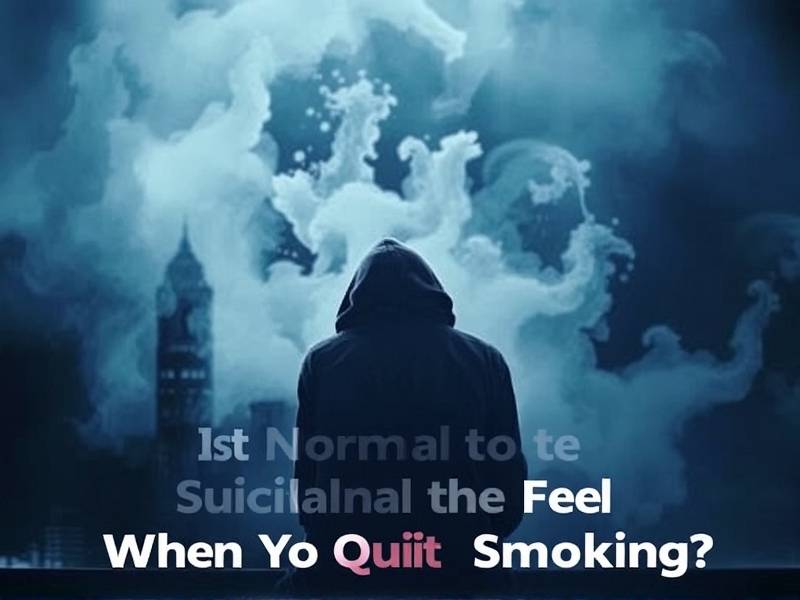Is It Normal to Feel Suicidal When You Quit Smoking?
Navigating the Emotional Journey: Understanding Suicidal Feelings During Smoking Cessation
Introduction: Quitting smoking is a significant life decision that comes with its own set of challenges. One of the most daunting emotional hurdles faced by many smokers is experiencing suicidal thoughts during the quitting process. This article aims to explore this issue, shedding light on whether it's normal to feel suicidal when you quit smoking and what steps can be taken to cope with these feelings.
Understanding Suicidal Thoughts During Smoking Cessation

-
The Link Between Nicotine and Mental Health: Nicotine, the addictive substance in tobacco, affects the brain's chemistry, which can lead to changes in mood and mental health. When you quit smoking, these changes can trigger intense emotions, including feelings of depression and even suicidal thoughts.
-
The Role of Withdrawal Symptoms: Withdrawal from nicotine can cause a range of physical and psychological symptoms, such as anxiety, irritability, and sleep disturbances. These symptoms can exacerbate existing mental health issues or trigger new ones.
-
The Importance of Recognizing These Feelings: It's crucial to acknowledge that feeling suicidal during smoking cessation is not uncommon. Understanding that these feelings are a part of the process can help you seek support and take appropriate action.
Addressing Suicidal Feelings: What You Can Do
-
Seek Professional Help: If you're experiencing suicidal thoughts or feelings, it's essential to reach out for professional help immediately. Mental health professionals are trained to provide support and treatment for individuals dealing with addiction-related emotional issues.
-
Reach Out to Friends and Family: Support from loved ones can be invaluable during this challenging time. Sharing your feelings with someone you trust can provide comfort and guidance.
-
Join Support Groups: Support groups for smokers who are quitting or those struggling with addiction-related mental health issues offer a platform for sharing experiences and learning coping strategies from others who have faced similar challenges.

-
Focus on Healthy Coping Mechanisms: Engaging in activities that promote relaxation and well-being can help alleviate stress and improve mood during the quitting process. These may include exercise, meditation, yoga, or hobbies that you enjoy.
-
Consider Nicotine Replacement Therapy (NRT): NRT products such as gum, patches, lozenges, inhalers, or nasal sprays can help reduce withdrawal symptoms by delivering controlled amounts of nicotine into your bloodstream without the harmful effects of tobacco smoke.
Conclusion:
Feeling suicidal when you quit smoking is a complex issue that requires understanding and compassion. By recognizing these feelings as a part of the quitting process and taking proactive steps to address them, you can increase your chances of successfully overcoming addiction while maintaining your mental health.
Remember: You're not alone in this journey—there are resources available to help you through this challenging time.
